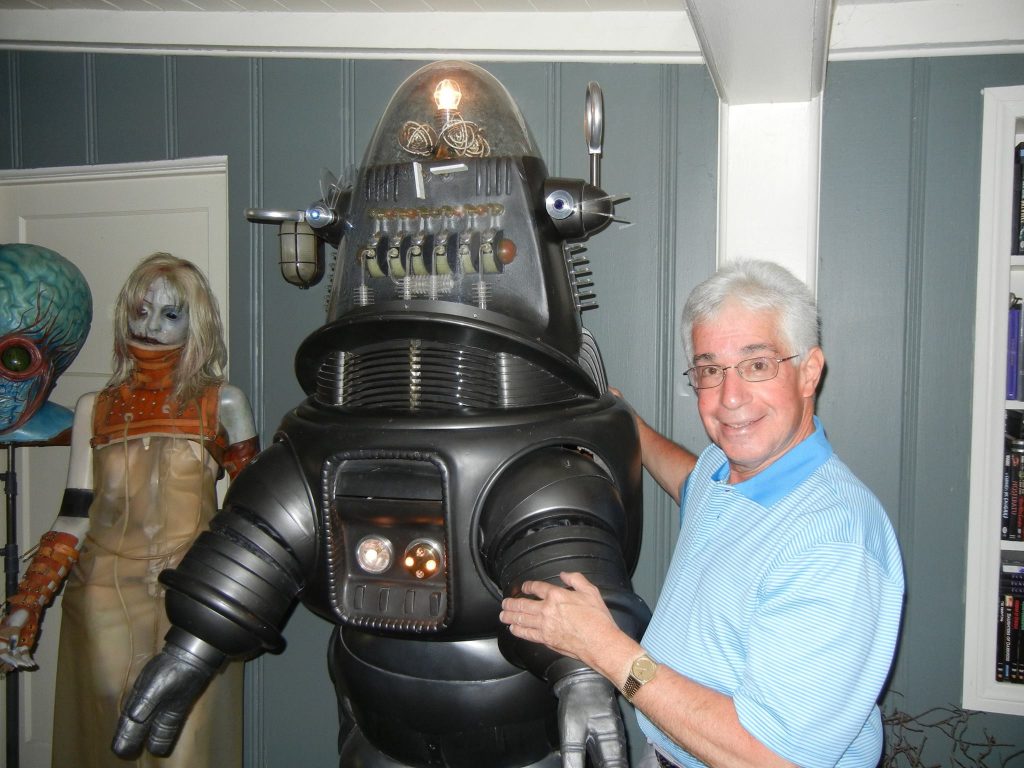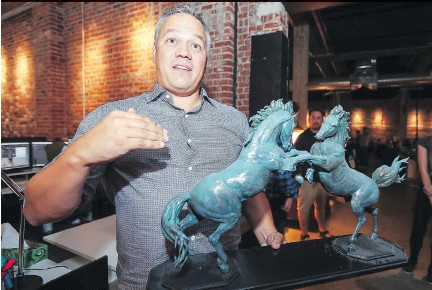While Trekkies everywhere are excited over the arrival of Star Trek: Discovery, it was an earlier series in that venerable franchise that influenced my professional life as a lawyer.
Thirty years ago this week, the debut of Star Trek: The Next Generation coincided with my first year of law school at McGill. My legal apprenticeship would have been well-served if I skipped class and only had that series upon which to draw.
Lawyers often cite Atticus Finch as a character from whom they drew their inspiration. For me, it was Jean-Luc Picard, captain of the Enterprise, who provided a lifelong seminar in legal philosophy, morality and ethics.
In the first episode of Star Trek: The Next Generation, an omniscient and meddlesome being called Q places the Enterprise crew on trial for the crimes of humanity.
“You will now answer to the charge of being a grievously savage race,” says Q, acting as judge.
“‘Grievously savage’ could mean anything. I will answer only specific charges,” Picard fires back. He is, in essence, challenging the legal sufficiency of the charge as being void for vagueness.
As a criminal defence lawyer, I learned that mastering the minutiae of procedure and challenging each point is what builds a reputation that prosecutors hate in opposing counsel. Their desire to avoid prolonged and costly trials is what fuels the plea bargaining that typically marks the resolution of criminal proceedings.
Another first season episode brought home that punishment must always be informed by fairness. In Justice, laws on a seemingly idyllic planet have only one punishment: death. Wesley Crusher, teenage son of the ship’s doctor, damages some flowers while playing catch.
Captain Picard is now faced with a moral choice: If he stays true to the Prime Directive (i.e. absolute noninterference in developing cultures) the result would be Wesley’s execution.
What does Picard do? What would any of us do?
He prevents the execution, of course! Picard had a sophisticated understanding of context. It drove home the point that the law must always reflect common sense.
It is in what is perhaps the most widely lauded episode of the series, The Measure of a Man, where Picard shines brightest. A Star Fleet scientist wishes to appropriate the Enterprise’s android Data and dismantle him for study and possible replication.
A hearing is convened. Picard argues that Data is a sentient being who should be accorded the right of self-determination. Picard emphasizes that any ruling today will bind all the potential androids that come after. A new race of beings could be subject to “servitude and slavery.”
It was a valuable early reminder that legal rulings create precedents. As well, Picard’s willingness to stand with those who would otherwise stand alone reminds us that vigilance in the face of officially sanctioned oppression of those who are “other from us” is an ongoing struggle.
More than a decade before 9/11, Picard recognized that security must never come at the expense of due process. In the episode The Drumhead, the uncovering of a single Klingon agent on board the Enterprise results in an official inquiry conducted by a visiting admiral who sees spies and saboteurs under every 24th-century bed.
Swiftly, accusation and innuendo smother the search for truth.
When a young crewman is singled out for lying about his parentage — his Romulan grandfather — the inquiry turns into a witch hunt.
That episode taught me that tyranny does not announce itself in one grand moment, but takes hold incrementally and can cloak itself in the veil of innocent inquiry and investigation.
What made Jean-Luc Picard so inspiring was his default approach: He always asked what should happen and not what a statute said must happen.
He identified the just result, and then constructed an argument to make it happen.
He boldly went where all lawyers should be willing to go.


